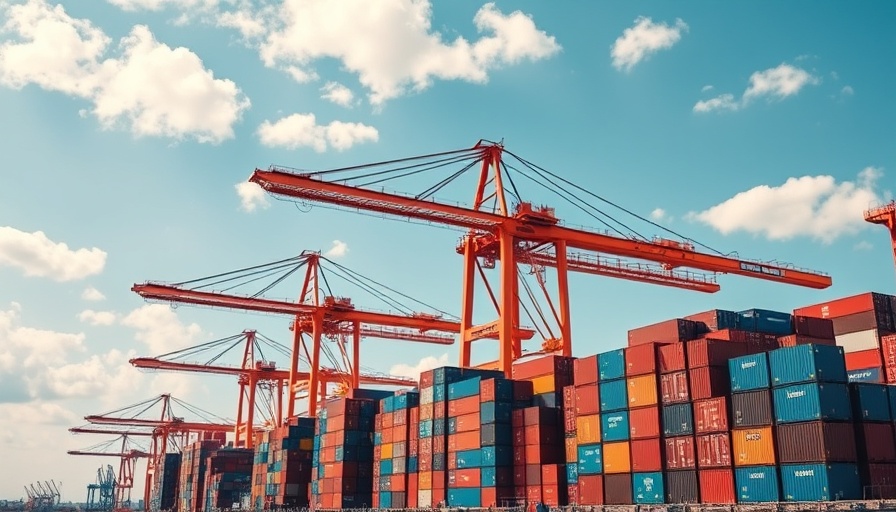
Crossing Barriers: Nigeria's Trade Vision at a Standstill
Nigeria aspires to be a powerhouse in global trade, but barriers are holding it back. The country is rich in resources and talent, especially in the sectors of technology, agriculture, and manufacturing. However, logistics issues, regulatory constraints, and infrastructural gaps hinder Nigerian startups from accessing global markets. These issues are crucial for entrepreneurs in emerging sectors such as AI, fintech, and blockchain.
Why Trade Matters for Nigeria's Emerging Tech Sector
For tech entrepreneurs and investors, understanding the trade barriers is vital. The potential for innovation in Nigeria's digital landscape is enormous, especially in AI and fintech, which are driving the digital transformation in Africa. If trade obstacles are addressed, startups can scale their solutions quickly and secure funding to grow.
Logistical Challenges Facing Nigerian Startups
One significant problem is the inefficiency in logistics. Startups must contend with high shipping costs and slow customs processes, making it hard to compete globally. For instance, many innovative products developed in Nigeria struggle to reach international markets, limiting their revenue potential.
Changing the Landscape: Future Opportunities
Despite these challenges, the future of work in Africa looks promising. Investors and tech leaders can drive change by creating solutions that streamline trade processes. Adopting technologies like blockchain offers potential for greater transparency and efficiency in transactions. These developments can create smart cities that nurture innovation and attract international business.
Call to Action: Join the Movement!
Entrepreneurs and investors should advocate for better trade policies and support infrastructural improvements. By working together, we can remove barriers and open new pathways for Nigeria’s ambition in global trade. Understanding and addressing these challenges is crucial for capitalizing on Africa's tech trends.
 Add Row
Add Row  Add
Add 


 Add Row
Add Row  Add
Add 

Write A Comment